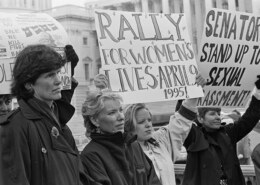Throughout history, women have been central to movements that shaped nations, challenged injustice, and transformed societies. From leading revolutions to organizing protests, from writing influential texts to risking their lives for freedom, women have often stood at the frontlines—yet their contributions are too often overshadowed or omitted from the mainstream narrative.
This article explores the powerful role women have played in key historical movements across the globe—and how their legacies continue to influence the world today.
1. Women in Revolution: Courage in the Face of Oppression
🇫🇷 French Revolution
Women like Olympe de Gouges boldly demanded equality during the French Revolution. Her Declaration of the Rights of Woman and of the Female Citizen (1791) challenged male-dominated politics and advocated for women’s full participation in society.
🇺🇸 American Revolution
Though often left out of the spotlight, women like Deborah Sampson (who disguised herself as a man to fight) and Mercy Otis Warren (a political writer and propagandist) played key roles in supporting independence.
🌍 Global Resistance Movements
-
Yaa Asantewaa, queen mother of the Ashanti Empire (Ghana), led a rebellion against British colonization in 1900.
-
Lakshmi Bai, the Rani of Jhansi, became a symbol of resistance against British rule in India during the 1857 uprising.
2. Women in the Fight for Civil Rights
🇺🇸 American Civil Rights Movement
When we think of the Civil Rights Movement, names like Martin Luther King Jr. come to mind—but women were its backbone.
-
Rosa Parks sparked the Montgomery Bus Boycott and became a global symbol of quiet defiance.
-
Ella Baker worked behind the scenes organizing grassroots activism and mentoring young leaders in SNCC.
-
Fannie Lou Hamer, with her powerful voice and raw testimony, fought for Black voting rights and dignity.
🇿🇦 Anti-Apartheid Movement (South Africa)
-
Winnie Madikizela-Mandela endured harassment and imprisonment while continuing to resist apartheid.
-
Thousands of South African women marched in 1956 to protest oppressive pass laws—an iconic act of collective defiance.
3. Women in the Labor and Suffrage Movements
🏭 Labor Rights
Women led strikes and union organizing in some of the toughest working conditions of the industrial age.
-
The Triangle Shirtwaist Factory fire in 1911, which killed 146 workers (mostly women), became a catalyst for labor reform.
-
Activists like Mother Jones and Clara Lemlich organized garment workers and miners for fair pay and safe workplaces.
🗳️ Suffrage Movements
From Emmeline Pankhurst in the UK to Susan B. Anthony in the U.S., women organized, marched, and were imprisoned fighting for the right to vote. In New Zealand, Kate Sheppard helped the country become the first to grant women suffrage in 1893.
4. Women in Peace and Environmental Movements
🕊️ Peace and Anti-War Movements
-
Bertha von Suttner, one of the earliest female Nobel Peace Prize winners, was a fierce anti-war voice in the 19th century.
-
Leymah Gbowee, a Liberian activist, organized a women’s peace movement that helped end Liberia’s civil war and earned her the Nobel Peace Prize in 2011.
🌱 Environmental Activism
-
Rachel Carson sparked the modern environmental movement with her book Silent Spring (1962).
-
Wangari Maathai founded Kenya’s Green Belt Movement, empowering women through environmental restoration and earning a Nobel Peace Prize in 2004.
5. The Legacy Today: Carrying the Torch Forward
Today, the impact of these trailblazing women is undeniable. Their struggles laid the groundwork for ongoing movements around gender equality, climate justice, racial equity, and human rights.
Modern movements—like #MeToo, Black Lives Matter, and global climate strikes—are led and powered by women continuing the tradition of activism, resilience, and leadership.
Honoring the Past, Shaping the Future
The history of progress is incomplete without recognizing the women who made it possible. Their legacies challenge us to rethink the stories we tell—and to ensure that women’s voices are heard, remembered, and celebrated.
Because history isn’t just something we inherit. It’s something we make.

